Impending eviction leaves tenants 'sick with worry'
- Published
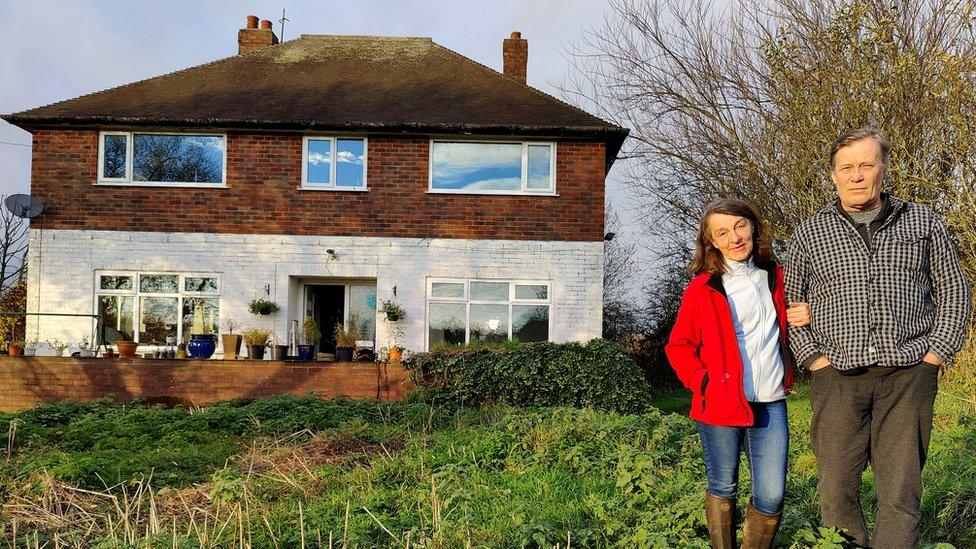
Barbara Smathers said when she and partner Les Harvey moved into the house in 2006, it was derelict and every window had been smashed
A tenant has told the BBC that an eight-week deadline to leave her home for the last 16 years is leaving her "sick with worry".
Barbara Smathers first found out she was being evicted from the property in rural Staffordshire when a Section 21 notice came through the letterbox.
The "no fault" eviction notice means a landlord does not need to give a reason for ending the tenancy.
Ms Smathers, 57, said it felt like "a trap door opening".
The news came, she said, after initially being told the new landlord was happy for her and her partner Les Harvey, 61, to stay.
They had even started to decorate their home in Audley after months of uncertainty.
She said finding another home was not proving easy, particularly as she also has 17 Caspian therapy horses.
"My life is being dictated to me from when I wake up, 'till I go to sleep. It's constant worry - from internet research, on the phone looking up who can you turn to for help and guidance, calling people," Ms Smathers said.
She said she was even facing the possibility of putting down some of her horses, if homes could not be found for them.
The government brought in a ban on enforced evictions during the first lockdown, however that was lifted at the beginning of June.
Since then, the Citizens Advice Bureau and housing charity Shelter said they had seen an increase in demand from people who were facing evictions.
The government has already said it is looking to end so-called "no fault" evictions next year.
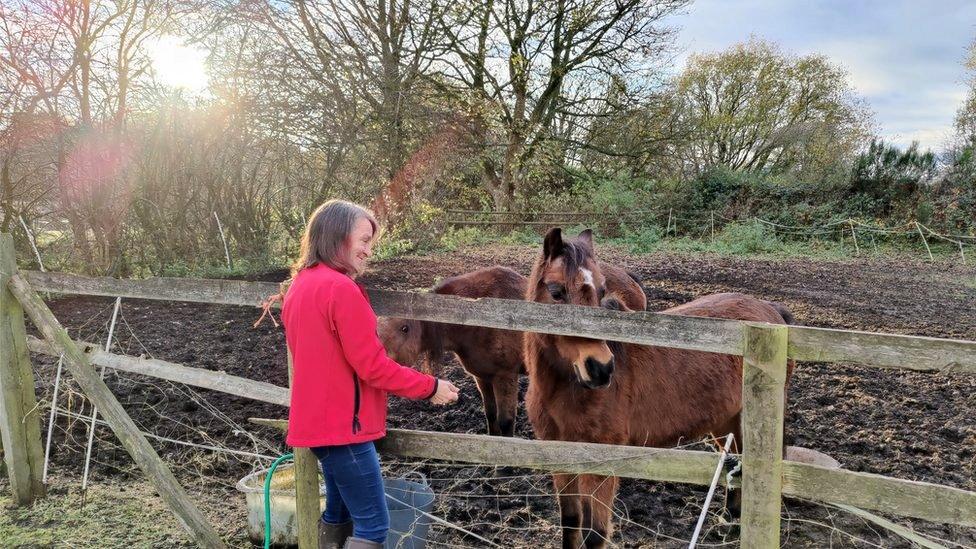
Barbara Smathers says she is having to contemplate putting down some of her horses
Ms Smathers said the stress had left her with panic attacks and anxiety, as well as feeling "utterly humiliated".
"It's not your choice," she added. "It's your entire life, your place of safety and then told to go and find somewhere else and have funds to pay moving costs and deposits."
The couple said they were struggling to find any affordable properties or land for the horses.
"Having to put healthy horses down - I don't want to think about it. It is too overwhelming. I'm having to deal with what I can do," Ms Smathers said.
The landlord has declined to comment.
Government eviction figures, external suggest when compared with the same period in 2019, possession claims fell by 64% last year, although the pandemic may have played a role in that, due to a backlog in cases.
'Last resort'
Research commissioned by Shelter, external earlier this year showed 1.8 million private renting adults in England were worried they would lose or be asked to leave their current home.
Katie Fitzgerald, letting agent manager for Securelets in Redditch, said issuing a Section 21 notice should be "a last resort".
"We only really serve a Section 21 when we're getting nothing back from a tenant," she said.
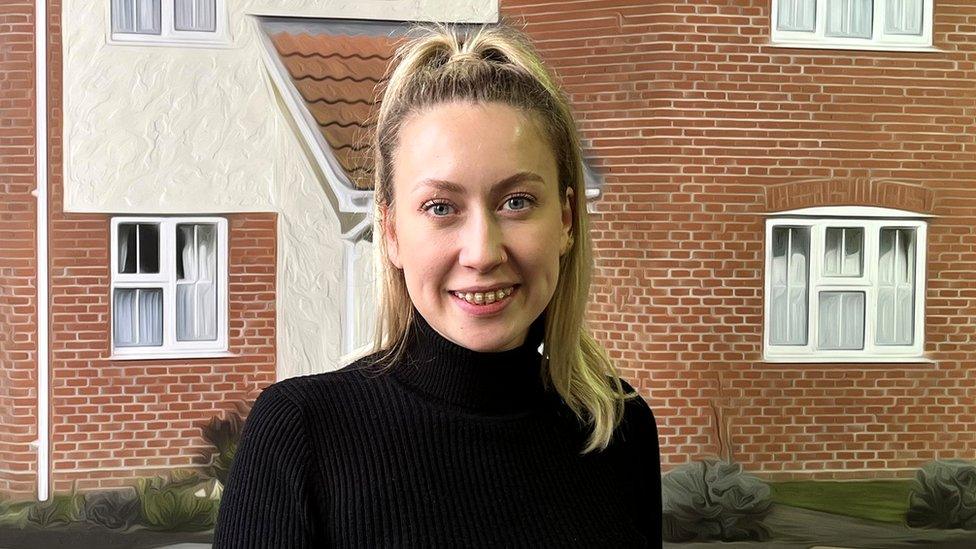
Katie Fitzgerald said it was very rare for the firm's tenants to be issued with a Section 21 notice
Ms Fitzgerald, who is also a West Midlands representative for the Association of Residential Lettings Agents (ARLA), said there were a range of reasons why landlords evicted tenants, including wanting to move back in themselves.
"You hear the horror stories and I don't blame people for disliking letting agents," she said.
"We all try here to be that little bit better, but you can't say that for all agents and all landlords - but equally there are also bad tenants. There are two sides."
A spokeswoman for the Department for Levelling Up, Housing and Communities said private renters had "the right to live in a safe environment and to be treated fairly".
She said the government intended to end the practice of Section 21 evictions in 2022.
ARLA, however, said the removal of Section 21 notices could mean less protection for landlords, and could see some of them leaving the industry.
According to research by the Resolution Foundation, external, by January 2021 rent arrears were "at least twice the level" of those before the pandemic.
The think tank estimated more than 750,000 families, almost half of them including children, were behind with housing payments.
'We're really struggling'
Anthony and Charlotte Smith, from Wolverhampton, could face losing their home by Christmas after they started to fall behind in rent payments over the summer, when their teenage son moved back in.
"It makes me feel sick," Mr Smith said. "We're having to use our rent money to pay bills and get food, because we've got an extra mouth to feed."
The 45-year-old is in receipt of Universal Credit and despite being considered a high priority for a two-bed council property, the family are unable to move because they are in rent arrears of more than £500.
They fear that figure could continue to spiral.
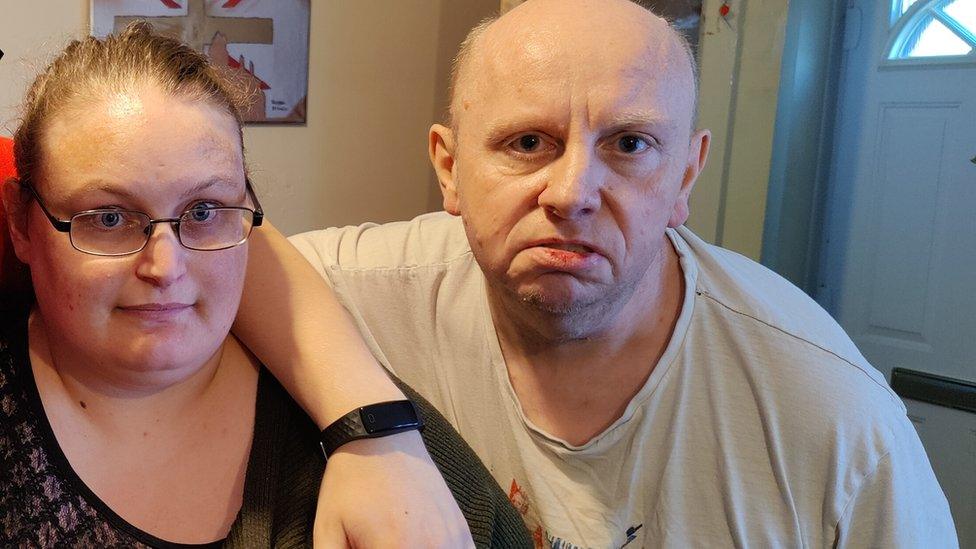
Charlotte and Anthony Smith are using rent money to pay for food and bills
Mr Smith said he had been asked to pay an extra £17 a month to start clearing the arrears, but could not make ends meet.
"We're really struggling and they're expecting us to pay that first payment," he said.
"I know the money is for the landlord and to pay the rent. But we just can't do it. We've fell behind with bills and food.
"That's why we're short. I've explained it to Universal Credit and Wolverhampton Homes and we're not getting anywhere."
Wolverhampton Homes said the wellbeing of tenants was its top priority.
"If a customer falls into rent arrears, we will offer advice, guidance and support to help them take control of their finances and get out of debt, including budgeting advice, access to affordable loans and grants, and help applying for benefits," a spokesperson added.

Advice for tenants
Stay in touch with your landlord or agent
If you are in rent arrears, don't ignore letters, external
You may be eligible for emergency housing, external or a discretionary housing payment, external
You can only be evicted if your landlord has followed the proper steps, external

Follow BBC West Midlands on Facebook, external, Twitter, external and Instagram, external. Send your story ideas to: newsonline.westmidlands@bbc.co.uk, external
Related topics
- Published23 September 2021
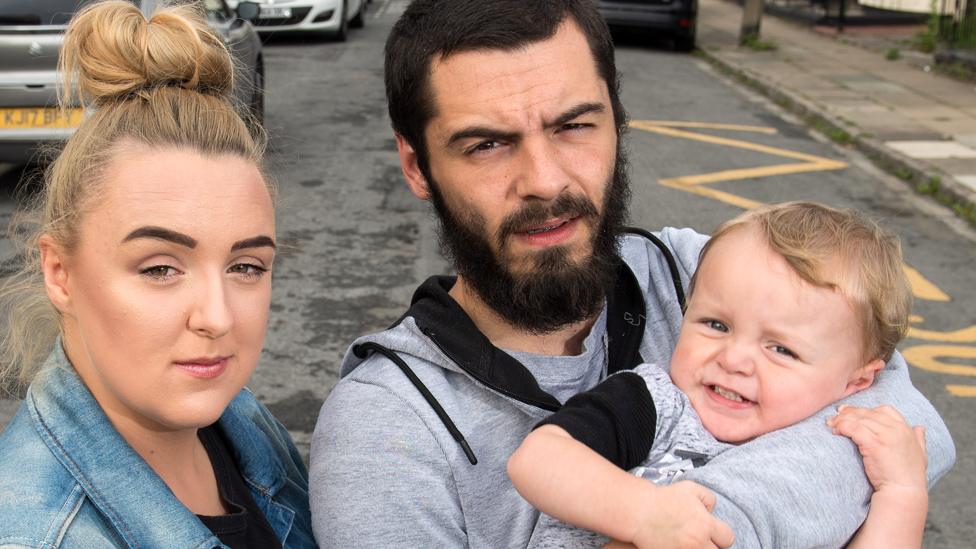
- Published16 September 2021
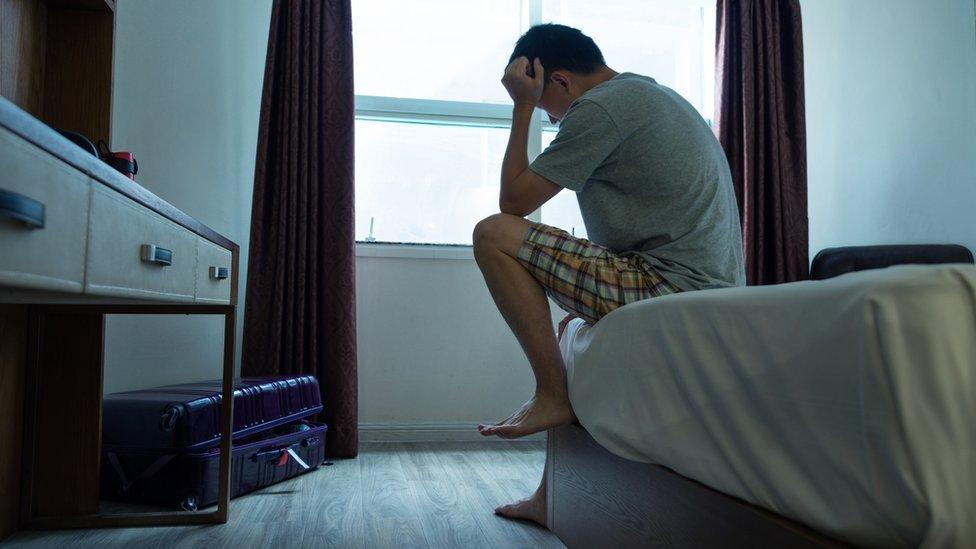
- Published31 May 2021
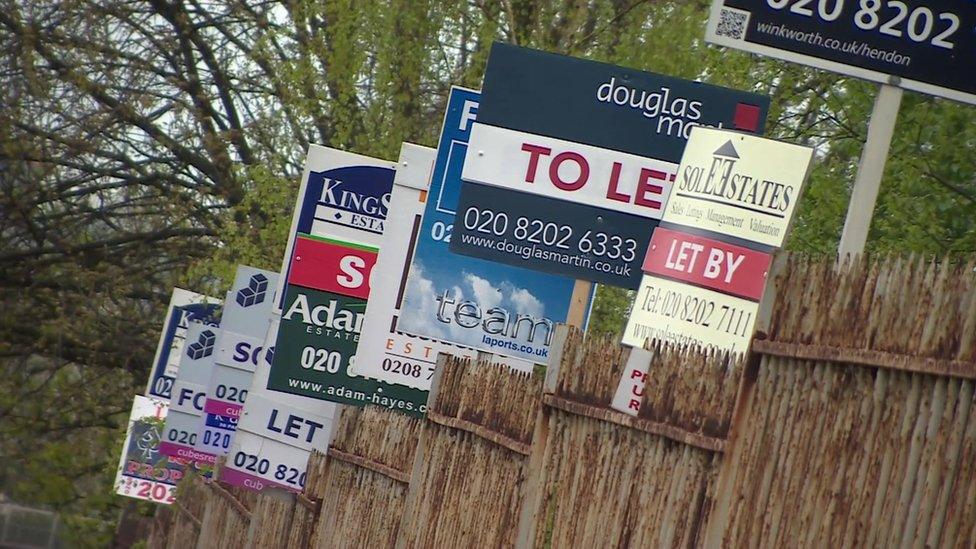
- Published28 May 2021
